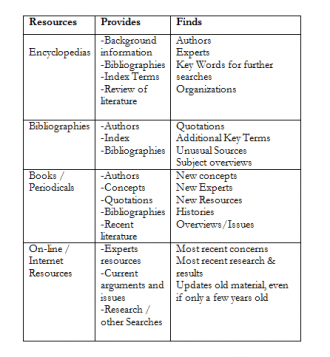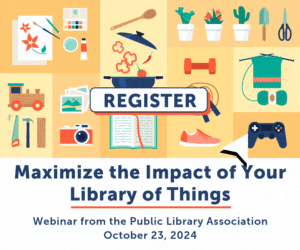Finding Answers Part Two — Locating Resources

Last month I wrote about finding answers. This is a follow-up on the process. Sometimes the process takes us to strange worlds like finding the answer to the riddle, “Do you walk to school or carry your lunch?” Many of the experts we rely on use their memories. Now I know at my age, my memory is not completely coherent, especially with family time-lines, i.e., what happened when with whom. On the other hand, I’ve known theater buffs who could tell you what review showed up in which issue of Variety.
In my lectures on literary research to PhD students, I tried to outline the process: coming up with some outlines and resources a researcher could use. I’ve mentioned some of those resources in the first “Finding Answers” article.
The outlines look like this:

Collecting and gathering information:
My notes Chart
(Type in name of Internet resource) _____________________________________
(Type in name of actual record, book, article, etc.) ____________________________________
The chart or spreadsheet above takes care of the process of recording what is found.
Sometimes in searching for information one needs to be reminded of resources and what they offer up in a search:
The process is fairly simple. Find the beginning topic that will take you to issues and subtopics. Search for those as well. Often you can find lots of subissues by searching with “vs.” such as “Christianity vs. Postmodernism.” Document what you’ve found. Analyze what you’ve found, and record your conclusions, or make decisions. Sure, we can get very bogged down in methods of organizing, subject headings, classifications and whatever, but if we are not helping our patron for on-point information, our credibility suffers.
Many of us know of someone who is an expert on a particular topic, and we often search out that person to ask. I still have a connection in the music industry and often turn to her for some music publishing information. We can find experts in many places and my chart for finding experts looked like this:
 Many experts are found online associated with email discussion lists.
Many experts are found online associated with email discussion lists.
Finding discussion lists for your area of need:
The Granddaddy of all search engines for lists is Liszt.com, which has apparently been taken over by Topica. Don’t go there, goto http://lists.topica.com/dir/., which provides adirectory of discussion lists with search engine as well as email newsletters.
http://www.tile.net/lists/ A comprehensive listing and search engine. Searching in Business, one comes up with 100 or more.
Catalist is the official directory of all public Listserv (maintained with lsoft software known as Listserv) lists http://www.lsoft.com/lists/listref.html There are over 325,000 lists by Listserv, but only 53,000 or so are public.
Simply clicking on Google Groups, with search term “listserv directory, ” you will be presented with a page that lists various discussion group directories and Listservs (those using L Soft software).
Another resource online is DiRT, http://dirtdirectory.org/about. The DiRT Directory aggregates information about digital research tools for scholarly use. It evolved from “Bamboo DiRT,” a version of the directory developed by Project Bamboo, which itself developed out of Lisa Spiro’s DiRT wiki. The DiRT Directory makes it easy for digital humanists and others conducting digital research to find and compare resources ranging from content management systems to music OCR, and from statistical analysis packages to mind mapping software.











